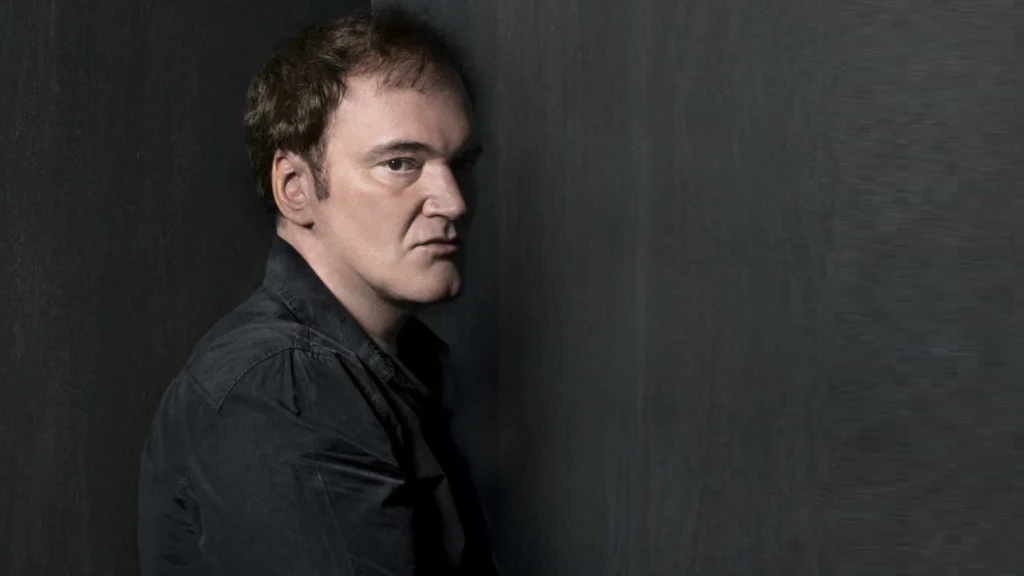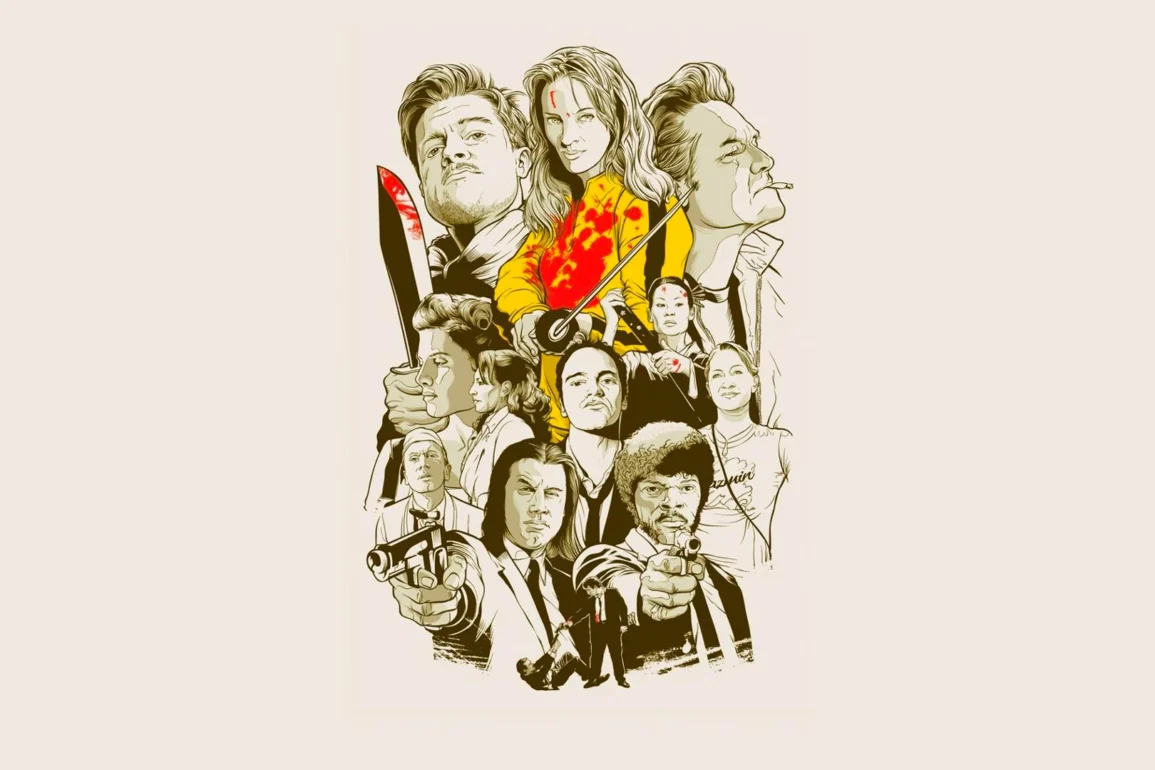
Quentin Jerome Tarantino, often hailed as one of the greatest filmmakers of his generation, has left an indelible mark on the world of cinema with his unique storytelling style and unparalleled passion for the medium. With a career spanning over three decades, Tarantino has directed and written numerous films, each possessing its own distinctive flair, while collectively contributing to the cinematic tapestry. In this article, we embark on a journey through all of Tarantino’s movies, exploring his evolution as a filmmaker and the thematic threads that run through his work.
1. Reservoir Dogs (1992)
Tarantino burst onto the scene with his debut feature, Reservoir Dogs. The film revolves around a botched heist and the tense aftermath among a group of criminals. Known for its sharp dialogue, non-linear narrative, and memorable soundtrack, this film established Tarantino as a filmmaker with a unique voice.
2. Pulp Fiction (1994)
Pulp Fiction catapulted Tarantino to international fame and is often regarded as one of the greatest films of all time. Its intertwining narratives, colorful characters, and iconic moments make it a cultural touchstone. Tarantino’s ability to blend violence, humor, and pop culture references in a coherent narrative was on full display here.
3. Jackie Brown (1997)
Jackie Brown marked a departure from Tarantino’s usual style. Adapted from an Elmore Leonard novel, it’s a slower, character-driven crime drama. The film showcased Tarantino’s talent for crafting complex characters and highlighted his admiration for blaxploitation cinema.
4. Kill Bill: Vol. 1 (2003) and Kill Bill: Vol. 2 (2004)
Kill Bill is a two-part revenge epic that pays homage to martial arts and samurai films. With Uma Thurman as the Bride seeking vengeance against her former assassins, Tarantino showcased his prowess in choreographing action sequences and his love for genre cinema. Vol. 1 is a kinetic spectacle, while Vol. 2 delves deeper into character and emotion.
5. Death Proof (2007)
Death Proof was Tarantino’s contribution to the Grindhouse double feature with Robert Rodriguez. A homage to exploitation films, it follows a stuntman with a deadly car who targets women. The film explores themes of female empowerment and was praised for its thrilling car chases.
6. Inglourious Basterds (2009)
Inglourious Basterds reimagines World War II history with a Tarantino twist. It follows a group of Jewish soldiers and a vengeful theater owner in Nazi-occupied France. The film combines tension, humor, and memorable performances, notably Christoph Waltz’s Oscar-winning turn as Hans Landa.
7. Django Unchained (2012)
Django Unchained is a spaghetti western-inspired tale of a freed slave seeking to rescue his wife from a brutal plantation owner. Tarantino tackled the sensitive issue of slavery while infusing the film with his signature style. It won two Oscars, including Best Original Screenplay.
8. The Hateful Eight (2015)
The Hateful Eight is a snowbound mystery thriller set in post-Civil War Wyoming. Tarantino’s penchant for ensemble casts and witty dialogue shines as a group of strangers becomes trapped in a cabin. The film was released in both 70mm and digital formats, showcasing Tarantino’s commitment to the art of cinema.
9. Once Upon a Time in Hollywood (2019)
Once Upon a Time in Hollywood is Tarantino’s love letter to the golden age of Hollywood. It weaves a fictional tale around real-life characters during the late 1960s, with Leonardo DiCaprio and Brad Pitt in starring roles. The film blends nostalgia, humor, and a revisionist history twist, earning Tarantino his second Best Original Screenplay Oscar.
Conclusion
Quentin Tarantino‘s filmography is a testament to his passion for storytelling and his willingness to push boundaries within the medium. From the gritty crime dramas of his early career to the genre-bending epics and historical reimaginings of recent years, Tarantino has consistently delivered movies that challenge, entertain, and provoke thought. As he continues to shape the cinematic landscape, one can only anticipate what audacious and imaginative stories he will bring to the screen in the future, leaving an indelible mark on the world of film.

